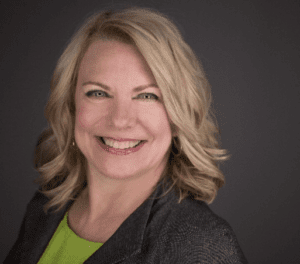We may have spoken to someone in the past with the best of intentions, and when those conversations did not go well, we learned to avoid them. The problem with avoiding, of course, is that situations rarely resolve themselves. Those situations typically worsen over time, strengthening our irritation, confusion, or negative feelings. They erode openness, stifle creativity, and weaken relationships.
You can engage in these conversations with predictably better outcomes by recognizing and shifting limiting beliefs and adding a few of these tools:
- I never lose. I either win, or I learn. When you believe you cannot lose no matter how the conversation goes, the only reality is that you will either have a good outcome for both parties or learn something powerful about what works or doesn’t. You have more courage.
- Crucial information may be missing. Listen first, talk second. “Sara, I want to talk to you about how we are handling our end-of-day closing process. I have some concerns about it, but I’m wondering how you think we’re doing?” The enlightening information you learn is amazing and can shift your perspective, heighten empathy, or causes you to change your mind completely.
- Agreement is a good place to start. Where you agree is a much stronger platform to launch the conversation. Would it be fair to say, Sara, that we both want to get out of here as close to 5:00 as possible to get home to our families?” Most reasonable people will agree. The rest of the conversation will be easier because it now seems in service to the foundational place of agreement.
- Judgment is a relationship killer. Very few things are strictly good or bad, right or wrong. Most either work or don’t work. Instead of speaking about things being wrong or bad, switch to “This doesn’t work for maintaining our value of excellent service.” Or “This works better for supporting the team in accomplishing our goals.”
- Nobody HAS to do anything. We really can’t make people do anything. It’s much better to speak about choice and show confidence that most people will make the choice that is best for them. We speak much less threateningly when we highlight the person’s choice to align with our values, company vision, team objectives, or even what I call my “non-negotiables.” For example, “Sara, one of my non-negotiables is that we are all here at 7:45, ready to go for the day. I understand that it may not be possible for you to be the kind of mother you want to be for your children every morning and get here by that time for work. I respect that very much. Only you will know your options and whether you can do both. I’ll fully respect whatever decision you make. If you decide to continue to work here, you would need to commit to our team agreement of a daily start time of 7:45.” In other words, you don’t have to do anything you don’t want to and certainly not anything that goes against a core value for you… and to work here, you would need to be here at 7:45 am. I’ll always be your champion in being “at choice” and making the best decision for you.
- No two people will see the past the same. Every time they go back, I go forward. When they say, “That’s not what I do!” (even if I disagree) I say, “Okay. Looking forward, how can we create a way to ensure that from now on, it’s done according to our agreement?”
- “And” is almost always a better word choice than “But.” “And” builds on the previous statement, and “but” cancels it out.
- Creative solutions can surprise you. If you’re open and not married to being right, it’s incredible what two reasonable and thoughtful people can create. Go in with ideas and be open to the delightful surprise of an even better solution.
The world needs more non-judgmental, thoughtful, and courageous conversations. Our professional and personal worlds need them too. Leaders go first. So, step up. Be courageous. Open your mind and your heart. Step out of anger and take responsibility for not speaking about these things sooner. Go into the experience ready to learn and grow yourself. Be sincerely curious and creative about what’s possible. Be a champion for the other person, no matter the outcome.
For a free copy of our LionSpeak Courageous Conversations Support Sheet for your team, email us at info@LionSpeak.net with CC Support Sheet in the subject line.

Katherine Eitel Belt and LionSpeak Communications Coaching provide training services designed to help dental teams access their own instinctive greatness and their full potential.
FMI: www.LionSpeak.net or call (800) 595-7060
Call us at (800) 595-7060 and identify yourself as a Trojan member and we’ll give you an extra 10% off our services!

